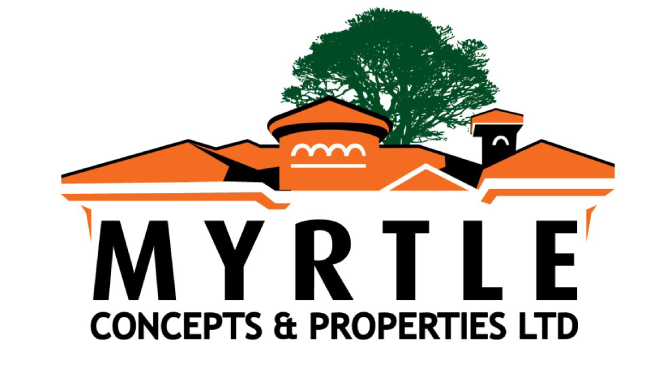REASONS FOR EMBRACING REITS IN UGANDA’S REAL ESTATE MARKET

Real Estate Investment Trusts (REITs) are important investment vehicle within the real estate industry, offering investors a unique opportunity to participate in the real estate market without directly owning properties. However, this opportunity is not exploited due to various factors. In this article, we explain the reasons why embracing REITs can be gainful for investors. From providing its inception, operation, diversification benefits to offering stable income streams and potential for growth, REITs present an attractive investment opportunity.
Inception of REITs
Real Estate Investment Trusts (REITs) were created in the United States in the early 1960s to make investment in income-producing commercial real estate available to all. It was set up for the average individuals, not the wealthy investors who were already reaping the benefits of commercial real estate. To achieve this aim of collective investment and inclusivity, the law stipulated that a minimum of 100 participants to form a REIT. However, there is apprehension regarding Uganda’s REIT, as it seems to deviate from the primary objective of serving small investors.
The Ugandan law, under the Collective Investment Schemes Act of 2003, requires a minimum of seven people to establish a REIT. This seemingly overlooks the essence of inclusivity and misses the opportunity to empower regular individuals who aspire to contribute collectively to income-producing real estate projects.
REITs Operation
To participate in the income-producing property industry through Real Estate Investment Trusts (REITs), individuals have two primary avenues, which are the main types of REITs. The first is the Equity REIT, where the primary objective is for small investors to pool their resources and collectively manage funds to acquire income-generating properties. The focus here is on using the collective capital to benefit from rental income.
The second major type Is the Mortgage REIT. Recognizing that not all investors want to engage in the challenges of property management, this type of REIT allows individuals to earn from lending.
Within the broader classifications of REITs, variations exist, and one notable type is the hybrid REIT. In this configuration, individuals seek to earn interest as well as rental income. While addressing these issues, elements of both Mortgage and Equity REITs are combined. This allows participants to enjoy the benefits of lending while also capitalizing on income from property acquisition and management.
In Uganda, the regulations primarily focus on Income REITs, and the Mortgage REIT aspect is not explicitly outlined in the collective investment schemes’ regulations for Real Estate Investment Trusts as of 2017, based on the Collective Investment Schemes Act of 2003.
Considering the type of REIT, one must understand whether it’s an open-ended or closed-ended REIT. Unfortunately, the focus in Uganda is on closed-ended REITs which overlooks the benefits of open-ended REITs. Closed-ended REITs have a fixed term, which may not align with income-generating properties with long-term prospects. In contrast, open-ended REITs are continuous trading funds, allowing investors to enter or exit at their discretion.
REITs are further categorized into Income REITs and Development and Construction REITs, often referred to as D REITs. The D REIT emphasizes the pooling of funds by small investors to generate a substantial amount, which is then used for the purchase of land, development, and construction of commercial properties subsequently realize profits or capital gains. The motivation lies in the entire process of acquiring land, financing construction, marketing, selling, and, ultimately, sharing the profits after deducting costs.
The following are reasons why REITs should be embraced in many Real Estate investment portfolios:
Tax Advantages/Efficiency
For compliant REITs, the most compelling aspect is the exemption from corporate income tax on their taxable income. When funds are pooled together and invested in income-generating properties, the resultant rental income or interest earned from lending is exempted from corporate tax obligations.
Diversification
REITs offer a convenient and efficient way for investors to access the real estate market. Investors can avoid the hassle of directly owning and managing property by investing in REITs, which pool together funds from multiple investors to invest in a diverse portfolio of real estate properties.
Certainly, diversification across property classes, create a portfolio of investments in multi-complex properties. By spreading investments across different property types, risks associated with a particular sector or asset class are minimized.
Conversely, by pooling significant capital together, there’s a chance to mitigate market risks through involvement in global real estate markets. This provides an opportunity to distribute market risks across various geographic areas and economic situations. This means that investors cannot be hindered by the economic conditions within the country, such as inflation.
Passive Income
REITs generate rental income from properties in their portfolio, which is distributed to investors in the form of dividends, providing a steady stream of passive income. Investors in REITs receive regular dividend payments from the rental income generated by the properties held by the trust. This provides a reliable income stream for investors, especially those seeking regular cash flow. Aside from receiving dividends, investors in REITs may also experience capital appreciation as the value of the real estate assets increases over time.
Liquidity
Traditionally, real estate is viewed as illiquid, requiring substantial time and effort for conversion into cash. However, with REITs, the ability to trade shares on the capital markets allows investors to quickly liquidate their real estate holdings. This liquidity provides investors with flexibility and the ability to quickly adjust their portfolios as market conditions change. Therefore, the REIT framework has the potential to facilitate cheaper and more accessible financing, making the real estate market more dynamic.
Professional Management
REITs are structured based on the principles of land trusts. In these trusts, individuals pool funds to acquire a property, and a trust is established to manage it. Unlike intervivos trusts, participants in REITs are not directly involved in the property’s day-to-day management. They are managed by experienced real estate professionals who handle property acquisition, leasing, maintenance, and other operational tasks, relieving investors of the burden of property management.
Access to Institutional-Quality Assets
Through REITs, individual investors can gain exposure to high-quality commercial properties, such as office buildings, shopping malls, and apartment complexes, that may otherwise be inaccessible or unaffordable.
REITs allow individuals to participate in the real estate market without the need for significant capital or expertise. By investing in REITs, individuals can gain exposure to real estate asset class and potential growth opportunities without having to directly purchase or manage properties. Instead, they can rely on the expertise and resources of professional REIT managers who have extensive knowledge and experience in real estate development.
Pertinent Issues
When evaluating different REITs for investment, corporate governance holds significant importance, and assessing the management structure is crucial. Additionally, scrutinizing the reporting mechanisms for accuracy is essential. These criteria can guide the assessment of various REITs.
The prevailing challenge in the Ugandan real estate market lies in its opacity and the lack of global standards. The market suffers from limited professional involvement, resulting in insufficient research, publications, and a lack of think tanks actively engaging in public dialogue on the industry.
In conclusion, embracing REITs in real estate allows investors to access the benefits of real estate ownership while mitigating some of the challenges and risks associated with direct property ownership.

How should we overcome speculation in the Real Estate Sector?
•
November 23, 2022
The real estate sector in Uganda is unregulated and the various stakeholders work in a free-market economy where property prices are determined …

Impact of Inflation on the Real Estate Sector – Uganda
•
October 5, 2022
Uganda like the rest of the world embarked on phased relaxation of COVID-related restrictions in the Q2 FY2021/22 with the full reopening …

The Fourth Industrial Revolution and the Real Estate Sector in Uganda
•
September 21, 2022
The Real Estate sector is continuously advancing in Uganda with various developments emerging on a daily basis. From early 2000’s, the real …

What the New Amendments to the Succession Act mean to the Real Estate Sector?
•
August 29, 2022
Land is a valuable asset and its value is always appreciating from time to time. Whereas everyone’s dream is to own land, …

Why you should hire a Property Manager?
•
August 16, 2022
Most often, when a landlord builds/purchases a residential property, they usually perceive it as the final stage to generate extra income. Alex, …

How Rammed Earth Building Technique works
•
July 29, 2022
Rammed earth is a tried and true method of architectural work throughout history. Of recent, Rammed earth has attracted renewed interests throughout …

History of the Use of the Rammed Earth Building Technique
•
July 18, 2022
The rammed earth technique is an ancient method of construction, with evidence of its use dating as far back as the Neolithic Period. This technique was …

Financing Housing with Retirement Savings
•
June 17, 2022
Uganda’s housing situation is characterized by inadequate homes in terms of quality and quantity in both rural and urban areas. Uganda has …

